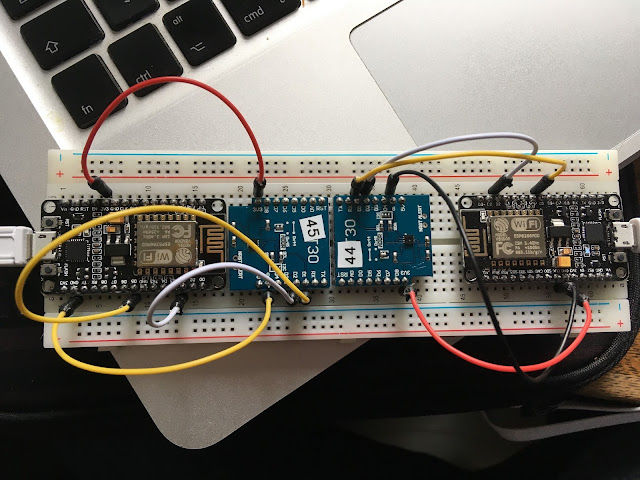Open Energy Monitor - homegrown emonPi Construction (part 3)
This project has been parked for a bit while various other things happened. I've been working with the ESP8266 in its various guises for a while now, and it's a very impressive and flexible piece of kit, largely because of its WiFi (and Bluetooth on the ESP32) capability. This opens it up to being used in lots of instrumentation projects, especially coupled with the ease of using firmware like Tasmota, which enable using it with minimal coding.
So rather than just pick up where I left off (which I really should!), I've been looking at implementing some of the emonPi functions in an ESP8266. In principle this should be possible, especially as the OEM people re apparently looking at such things as well - they've even got an add-on emonESP that uses one to link the original Arduino-based hardware to Wifi.
I just tried compiling the emonPi/firmware/src code in the Arduino 2.0.3 IDE, which of course exploded. In order to get it just to compile, and bearing in mind I was planning to remove some of the function anyway e.g. RF, I started commenting out things. And it eventually compiled! Hurray.
LiquidCrystal_I2C Issues
The only problem was that the LiquidCrystal_I2C library, used to operate the display, was flagged as an AVR (Atmel-specific) module. This was a bit of a problem, so I researched the use of the popular LCD1602 with ESP<anything>, and disappeared down a rathole with invalid links and so on, and the usual plethora of GitHub clones that various individuals had taken in the past. Eventually, one Bill Perry showed up on the Arduino forum to explain what had happened, involving allegedly illegal changes to licensing, and suggesting that people try his spiffy new interface. So that's what I'm in the middle of doing! Looks pretty flexible, and it will hopefully be supported, but it's completely open source so hurrah.


Comments
Post a Comment